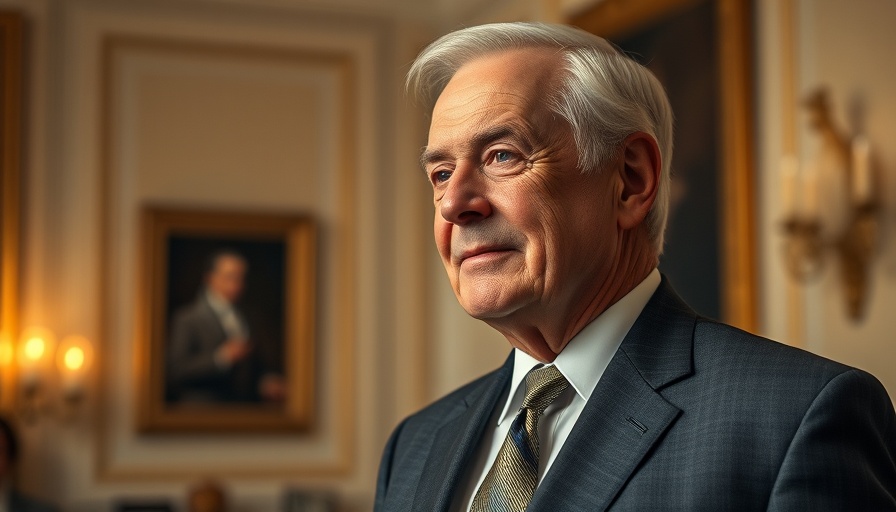
Judicial Independence Under Threat: The Rhetoric of Impeachment
The tension between President Donald Trump and the judiciary reached a heightened pitch recently when Trump explicitly called for the impeachment of a federal judge, James Boasberg. This judge had made a ruling against the Trump administration regarding the deportation of alleged Venezuelan gang members, temporarily blocking the use of a controversial wartime authority. Following this provocative statement from the president, Chief Justice John Roberts issued a rare public rebuke, emphasizing that impeachment is not a suitable response for disagreements with judicial decisions. His statement highlights a critical dimension of American democracy: the independence of the judiciary, which is designed to serve as a check on executive power.
Trump's Unconventional Approach towards the Judiciary
Trump's rhetoric opposing judges who rule against him is not unprecedented, but the intensity and nature of his calls to impeach are alarming. Historically, U.S. leaders have respected judicial rulings, regardless of their personal opinions about them. The Chief Justice's remark was strategically crafted, as it stemmed from more than just a reaction to Trump's latest comments; it reflects a broader concern about the erosion of respect for judicial authority. The implications of Trump's approach ripple beyond mere comments—they risk tipping the scales in what is already a very polarized legal landscape.
Historical Context: A Shift in Presidential Rhetoric
This isn't the first time Trump's relationship with the judiciary has come under scrutiny. His previous term witnessed a similar strain, characterized by his public disdain for judges he referred to as "Obama judges" and others who occasionally blocked his policies. In those moments, judicial independence was framed as a political issue rather than a constitutional safeguard. This trend towards calling for retaliatory measures against judges based on their decisions marks a worrying shift in how presidential power is discussed within the framework of American democracy.
Responses from Judicial Scholars and Legal Experts
Many legal scholars and commentators express concerns regarding Trump’s aggressive rhetoric and its potential effects on public perception of the judiciary. Some argue that calling for a judge’s impeachment sends a chilling message to other judges making possibly controversial decisions, while also undermining the public's trust in an independent judicial system. This scrutiny also reflects on the Chief Justice’s past—Roberts himself has had an uneasy relationship with Trump, given the previous criticisms aimed at his presidency and some of the Supreme Court’s rulings that lean in Trump’s favor.
Potential Consequences of Eroding Judicial Independence
Trump's call for impeachment not only raises immediate constitutional questions but also prompts concerns about the long-term health of judicial independence in the United States. An independent judiciary is essential for upholding the rule of law and ensuring fair trials. If judges perceive that their positions are at risk due to political pressures, they may be less likely to act without bias or fear, ultimately changing the interpretation and sanctity of laws. This delicate balance of power is foundational to American governance and is now facing unprecedented challenges.
What Lies Ahead: Future Insights into Judicial-Executive Relations
As political tensions escalate, the future of judicial-executive relations in the U.S. remains uncertain. Currently, there’s a growing call among some of Trump’s allies to fortify their attacks against the judiciary, which has already raised alarms about a potential constitutional crisis. Chief Justice Roberts' statements may serve as a call to arms for those who believe in protecting the independence of the courts. However, the sustainability of this independence will ultimately hinge on both public and political support.
Common Misconceptions about Judicial Processes
A pervasive misconception in today’s political discourse is that judges are inherently partisan or politically motivated. This idea undermines the fundamental principle of an impartial judiciary. In reality, the majority of judges, including those on the Supreme Court, strive to apply the law fairly, regardless of personal beliefs. The challenge, as emphasized by Chief Justice Roberts, is to preserve the perception and reality of an unbiased judicial system, one that serves justice above political interests.
The ongoing interplay between Trump’s aggressive rhetoric and the judiciary highlights a critical moment in American constitutional law. Citizens must be vigilant in recognizing the importance of an independent judiciary as a cornerstone of democracy.
 Add Row
Add Row  Add
Add 



Write A Comment